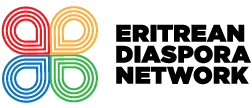This months spotlight features Rahwa Gebretnsaie, Senior Legal Council at Apple. Read on to learn more about Rahwa’s path to a successful career in law.
Please briefly explain some of your responsibilities in your current career role.
I’ve been a senior legal counsel at Apple for three years, working primarily on contracts with suppliers and manufacturers, and monitoring regulations that may impact the ways we sell our products around the world.
How did you decide that this was the right career path for you?
Like most Eritreans, my parents raised me with a strong sense of identity and purpose. I grew up in the San Jose Eritrean community surrounded by people who dedicated their time and resources to supporting their homeland and each other. They inspired me to try to find ways to give back. I went to college thinking I was going to become a medical doctor and go back to Eritrea one day. I learned quickly from my grades in some science courses that I could be a mediocre doctor, or a better something else. I then decided to bridge what I was good at academically with what I cared about personally Through exploring courses and joining student groups, I decided to pursue a career in law.
What are your top three pieces of advice for someone looking to become a lawyer?
Talk to other lawyers. Talk to lawyers in different practice areas. Ask them what they do on a day to day, how they got their jobs, what they find rewarding about their work, what they dislike. This will help give you a realistic view of what it means to be a lawyer. Also, check out the these recorded sessions where Eritrean attorneys speak about their careers: https://www.youtube.com/@EritreanABA/videos and reach out to the Eritrean American Bar Association to connect with Eritrean attorneys. You can reach us at www.ErABA.org via the contact page.
Know your purpose. Why do YOU want to practice law? Law school and the legal profession are very challenging – it’s important that you chose this path for yourself.
Have a financial plan. Law school is expensive and student loans can take years to pay off. Apply to as many scholarships as possible no matter how small, every dollar adds up. One easy way to do this is to write your story and use it as a template that you can tweak and apply to different scholarships. Graduating with little debt means you can choose a job that you want rather than the job you need to pay off your debt.
What do you recommend someone going to law school do to prepare?
Build healthy habits BEFORE starting law school. Habits take time to form, and you want to ensure that you have healthy ways to cope with stress before you start law school. Aim to exercise at least 3-4 times per week and go on walks at least 4-5 times a week for 30 minutes. The blood/oxygen flow to your brain will go a long way for your physical and mental health. Otherwise you may become victim to unhealthy stress relievers.
Build your NETWORK! Join student groups and deepen your relationships with your fellow students and alumni. WHO you know can be just as important as WHAT you know in your career. The Eritrean American Bar Association is one of my networks you should plug into for support and camaraderie: www.ErABA.org
Keep in touch with your people, even when times get busy. We can’t survive alone in this world, and you will need to lean on your community when times get tough.
What are the most rewarding aspects of your career?
Law is power. Simply letting someone know that I’m an attorney can often make problems go away. I’ve had a number of easy victories that have reminded me of the power of being an attorney and the responsibilities that come with it.
What have been some of the challenging aspects of your career, and how have you navigated through them?
My parents taught me that if I kept my head down and worked hard, I would be successful. That advice worked with academics…study hard, get good grades, get into good schools. Unfortunately, that guidance has not always been true in my career.
Before I came to Apple, I worked at places where I was treated unfairly. Despite putting in long hours, publishing articles, requesting challenging assignments, I was often ignored when I spoke, hyper scrutinized for my mistakes and passed over for promotion.
My family and close friends always reminded me of who I am and what I am capable of. My mom would always tell me, ‘don’t let others define you – you don’t need others to tell you that you’re great, you should always know what you are capable of.’ As a minority, you need a strong self-identity to persevere in this profession.
Working in a toxic work environment can still damage your confidence and limit your potential. The book “Designing Your Work Life” has given me a lot of practical tools on how to work smart and navigate challenges in the workplace.
Imposter Syndrome is a real feeling that some people have in the workplace. It has been observed that women are more likely to believe they need to learn or do more of something before they feel ready to take a risk, like taking on a new role. It’s called “overvaluing expertise.” What strategies have you used to manage feeling like an imposter? What has been most effective?
Keep receipts. Write down the little wins at work and be specific about the contributions you made that created a successful outcome. Do this regularly. Keep an email folder and save the emails people send thanking you for your work or acknowledging your contributions. When it comes time to advocate for yourself, it is important that you can point to these objective facts.
Speak up, even if you think others aren’t listening. People need to hear what you are doing from YOU. This is not about bragging, but rather about sharing what you are working on that is adding value to your organization. Make sure your voice is heard at group meetings. Do this in a way that is authentic to you. I have a softer voice, so I have to be deliberate about my word choices in order to draw attention to what I am saying, such as “I have something to share with you” or “hey, this is really important”. It also helps me to write notes down before meetings so that I come prepared with points to share.
To date, what is your greatest professional accomplishment?
I have lead some challenging negotiations in my current role, and the outcomes have been rewarding. I enjoy being able to think strategically, learn where to find leverage and understand what interests really matter to the company.
One very rewarding (pro bono) professional accomplishment was winning an asylum case for a young Syrian Christian boy who was separated from his family during the war. My brief was also used to bring more members of his immediate family to the US.
Outside of your hard work and efforts toward building your brand, what do you do for fun? Hobbies?
I love going to stand up comedy shows. Good comedians can hold a mirror up to society and can challenge us to see ourselves and our absurdities. I grew up playing soccer (futbol) and still love the game thanks to my father who challenged me to do things outside of my comfort zone. I also love getting outdoors and going on hikes with my brother, when he tolerates me.

